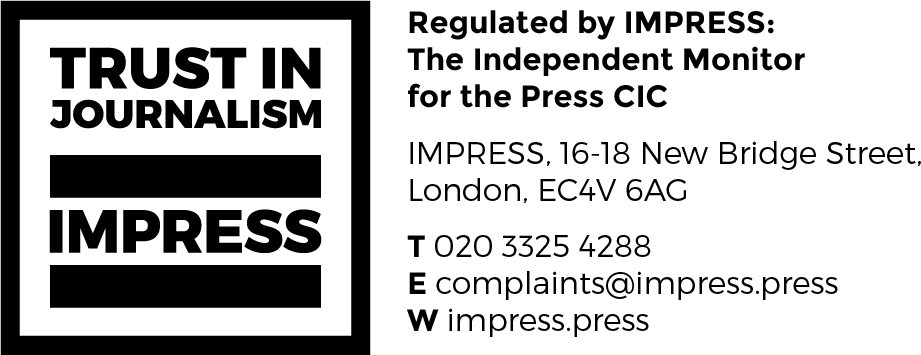News and views from Superyacht Investor London 2023

More than 170 delegates gathered at the Royal Garden Hotel last week for our Superyacht Investor London 2023 conference. Panels and presentations covered a broad range of topics ranging from superyacht sales, the “booming” charter market to the impact of the Russian invasion. Decarbonising yachting also featured prominently. Despite the challenges ahead, most felt positive about the future of the superyacht industry.
The first panel of the event was ‘A deep dive into today’s market’ from Richard Lambert, head of Sales, Burgess. Growth in superyacht sales was relatively static until 2021, but that summer became the best period for transactions, he said.
In 2021, there was a staggering 70% rise in the sale of yachts over 30m in length to reach 462 vessels. Lambert attributes this to new buyers entering the market after Covid. That followed a 14% rise in sales to total 271 yachts in 2020 compared with the previous year.
But last year there was a 22% drop in sales with 362 yachts sold. However, that remains far above pre-2020 levels, said Lambert. He predicted this year will be much quieter for superyacht sales, based on the company’s research.
“I don’t think 2023 will be as good as last year, but of course I would love to be proven wrong. It won’t fall off a cliff, but we will start to see a longer term trend of sales from what we’re seeing now,” said Lambert.
He also noted a significant increase in price reductions and more yachts brought to market too. But this is not a bad thing for brokers who have suffered from lack of inventory over the past three years, he added.
Italian shipyards continue to dominate the yacht market, producing almost 200 yachts in 2021 and about 140 in 2022, according to Burgess. However, Germany still takes the crown for both years with the largest average length overall (LOA) of yachts built at around 110m (360ft) and 80m (262ft) in 2021 and 2022 respectively. American owners also hold the largest share of the global ownership market at 39.4%, followed by British owners at 10.6%.
Yacht sales may be navigating uncertain waters, but the charter market is “booming” this year, said Gayle Patterson, director of Pelorus Yachting, Pelorus. “Despite everything going on in the world, people are desperate to get away. We expect to have a very positive 2023.”
Advait Deodhar, senior sales and charter broker, TJB Super Yachts agreed. “There was a charter boom in 2022 and it is looking like it is going to be the same this year. The numbers for 2023 are already looking very similar to what we saw last year.” According to data from Burgess, American charter clients continue to dominate the market too, taking a share of 56.2% and 57.3% of the global retail charter and management market respectively.
Another topic of discussion was the effect of the Russian invasion on superyachting. Whilst it has not had the negative impact on sales and charter to the extent that many first feared, some believe it is the superyacht industry’s image that has suffered more.
“The image of the superyacht industry has now gone back years,” says Quentin Bargate, CEO, Bargate Murray. “It has always had a difficult image, but now it has been reinforced as this traditional James Bond villain-type image that has been imprinted on the public imagination.”
It has had some impact on how transactions are conducted, however. Christopher Anderson, partner, Robert Allen Law said while many Russian clients oppose the war, it would not be wise to involve the dollar in transactions with them to minimise scrutiny from the US government. “The dollar is a non-starter with any Russian client,” he said.
James Jaffa, founding partner, Jaffa & Co worried sanctions are likely to become more severe. “Owners are bringing their money to the Middle East to places like Dubai or Turkey, so I think the sanctions will worsen for that very reason.”
Daniel Martin, partner, HFW added sanctions have been less than fully effective. “Are the sanctions having the desired effect? Definitely not. They are not changing things on the ground as much as we would have hoped.” The Russian economy has not been damaged in the way most predicted it would be last year either.
Matthew Attard, partner, Ganado Advocates said the main takeaway from the sanctions panel was that everyone must be incredibly careful with whom they do business. “This is the benefit of working in a jurisdiction with more transparency – you can vet who you are working with,” said Attard. “When you operate in one with less scrutiny, you could be asking for trouble.”
Sustainability featured prominently during the event’s discussions. With superyachting looking to move away from traditional fossil fuels, Simon Brealey, chief engineer mechanical, Lateral Naval Architects told the audience that methanol is the fuel owners are most likely to want. Nearly half the audience agreed, with 41% stating they are most excited by methanol fuel.
“A sustainable new yacht can be built today, albeit with a premium price paid on the initial investment,” said Brealey. “But the investment you put in now, in 10 or 15 years, there is a likelihood that you will see a lot of that back.”
To push this forward, however, Simon Turner, global sales director Sunreef Yachts said that the technology has to be made readily available, without compromising performance. “We have to make the product available for brokers too and meet the customer expectations. You need to sell the benefits to them first.”
One panellist highlighted the big difference between yachting and shipping is that shipping is a necessity and yachting is not. “Therefore, yachts need to be as sustainable as possible. We need to start somewhere and we are running out of time,” he said.
Ben Mennem, founder and co-chairman, MB92 La Ciotat addressed the challenges the refit market faces. Aside from the dangers presented by war, rising inflation and political unrest, Mennem said it is imperative for the industry to improve its sustainability to survive.
“I’ve always argued that yachting is a good thing because it creates a huge amount of employment for so many people, but we need to clean up our act,” he said.
Rising inflation puts the industry at risk too said Ben Lind, senior yacht underwriter, AIG in the insurance panel. “Costs are increasing for insurers too. It is inevitable. The client will ultimately have to take some of this cost on.”
Paul Miller, director, Millstream Underwriting Limited highlighted that regulation keeps changing and will continue to do so. “What is right today, is wrong tomorrow. And it is only going to get worse. Marine liabilities are likely to go up.”
Robin Clayton, head of Asset Finance, Investec said that whilst finance will be affected by the current economy, the industry will be able to mitigate the downturn from foundations built across superyachting during the boom. “I think it is inevitable that enquiries will go down given the current economic climate,” he said. “But we’ve built a strong pipeline and got enough in the tank to see us through.”
So, in what mood did delegates leave our two-day conference? Many thought the drop in yacht prices and sales revealed the industry moving towards a new normal after two years of unprecedented success during the Covid-induced boom years. The current economic climate poses challenges too, as inflation-induced cost rises are likely to be passed on to customers. But with shipyards’ order books full and the charter market looking strong as ever, most attendees left feeling positive about the year ahead.
Fancy catching up on Superyacht Investor London 2023 content? Click here to watch the presentations from the event.
Subscribe to our free newsletter
For more opinions from Superyacht Investor, subscribe to our email newsletter.

